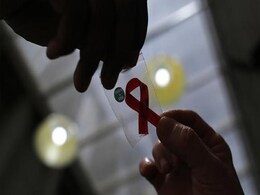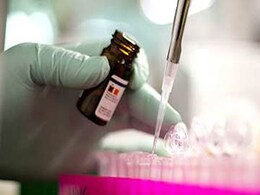The Johns Hopkins University School Of Medicine
- All
- News
-

Dharmendra Pradhan Meets Johns Hopkins University Officials To Discuss Offshore Campus In India
- Monday November 18, 2024
- Education | NDTV
As part of their multi-city tour across India, the delegation is set to visit several Indian university campuses.
-
 www.ndtv.com/education
www.ndtv.com/education
-

This Is What Happens To A Shy Octopus On Ecstasy
- Friday September 21, 2018
- Science | Ben Guarino, The Washington Post
If you give an octopus MDMA, it will get touchy and want to mingle. What sounds like the premise of a children's book set at Burning Man is, in fact, the conclusion of a study published Thursday in the journal Current Biology. Neuroscientist Gul Dolen, who studies social behavior at the Johns Hopkins University School of Medicine, and octopus ex...
-
 www.ndtv.com
www.ndtv.com
-

Excessive Calcium May Damage Your Heart: Study
- Friday October 14, 2016
- Press Trust of India
Researchers at Johns Hopkins University School of Medicine in the US evaluated the effects of calcium supplements versus calcium in the form of food.
-
 food.ndtv.com
food.ndtv.com
-

Study: HIV Can Hide And Grow In 'Sanctuaries' In Body After It's Undetectable In Blood
- Tuesday February 9, 2016
- Health | Ariana Eunjung Cha, The Washington Post
A new National Institutes of Health-funded study shows that HIV can still live and grow in the body even after disappearing from the blood following aggressive antiretroviral therapy.
-
 www.ndtv.com
www.ndtv.com
-

Exercise Could Protect the Brain From Ageing
- Monday November 23, 2015
- Health | Press Trust of India
Exercise may increase the level of an enzyme which protects the brain from energy-depleting stress that can lead to ageing and neurodegenerative diseases such as Alzheimer's, a new study in mice has found.
-
 www.ndtv.com
www.ndtv.com
-

The Apple Watch Could Soon Predict Seizures, Thanks to Johns Hopkins University
- Friday October 16, 2015
- Health | Hayley Tsukayama, The Washington Post
One of the most promising uses for the Apple Watch is its potential for improving health and fitness. And now, thanks to a new study from the Johns Hopkins University School of Medicine, the Watch is being used for the first time as a tool to help those diagnosed with epilepsy.
-
 www.ndtv.com
www.ndtv.com
-

Researchers Identify 'Long-Sought Culprit' of Heart Failure
- Friday March 20, 2015
- World News | Indo-Asian News Service
The research, published in the journal Nature, revealed that an enzyme called PDE-9 interferes with the body's natural "braking" system needed to neutralise stress on the heart.
-
 www.ndtv.com
www.ndtv.com
-

Dharmendra Pradhan Meets Johns Hopkins University Officials To Discuss Offshore Campus In India
- Monday November 18, 2024
- Education | NDTV
As part of their multi-city tour across India, the delegation is set to visit several Indian university campuses.
-
 www.ndtv.com/education
www.ndtv.com/education
-

This Is What Happens To A Shy Octopus On Ecstasy
- Friday September 21, 2018
- Science | Ben Guarino, The Washington Post
If you give an octopus MDMA, it will get touchy and want to mingle. What sounds like the premise of a children's book set at Burning Man is, in fact, the conclusion of a study published Thursday in the journal Current Biology. Neuroscientist Gul Dolen, who studies social behavior at the Johns Hopkins University School of Medicine, and octopus ex...
-
 www.ndtv.com
www.ndtv.com
-

Excessive Calcium May Damage Your Heart: Study
- Friday October 14, 2016
- Press Trust of India
Researchers at Johns Hopkins University School of Medicine in the US evaluated the effects of calcium supplements versus calcium in the form of food.
-
 food.ndtv.com
food.ndtv.com
-

Study: HIV Can Hide And Grow In 'Sanctuaries' In Body After It's Undetectable In Blood
- Tuesday February 9, 2016
- Health | Ariana Eunjung Cha, The Washington Post
A new National Institutes of Health-funded study shows that HIV can still live and grow in the body even after disappearing from the blood following aggressive antiretroviral therapy.
-
 www.ndtv.com
www.ndtv.com
-

Exercise Could Protect the Brain From Ageing
- Monday November 23, 2015
- Health | Press Trust of India
Exercise may increase the level of an enzyme which protects the brain from energy-depleting stress that can lead to ageing and neurodegenerative diseases such as Alzheimer's, a new study in mice has found.
-
 www.ndtv.com
www.ndtv.com
-

The Apple Watch Could Soon Predict Seizures, Thanks to Johns Hopkins University
- Friday October 16, 2015
- Health | Hayley Tsukayama, The Washington Post
One of the most promising uses for the Apple Watch is its potential for improving health and fitness. And now, thanks to a new study from the Johns Hopkins University School of Medicine, the Watch is being used for the first time as a tool to help those diagnosed with epilepsy.
-
 www.ndtv.com
www.ndtv.com
-

Researchers Identify 'Long-Sought Culprit' of Heart Failure
- Friday March 20, 2015
- World News | Indo-Asian News Service
The research, published in the journal Nature, revealed that an enzyme called PDE-9 interferes with the body's natural "braking" system needed to neutralise stress on the heart.
-
 www.ndtv.com
www.ndtv.com








